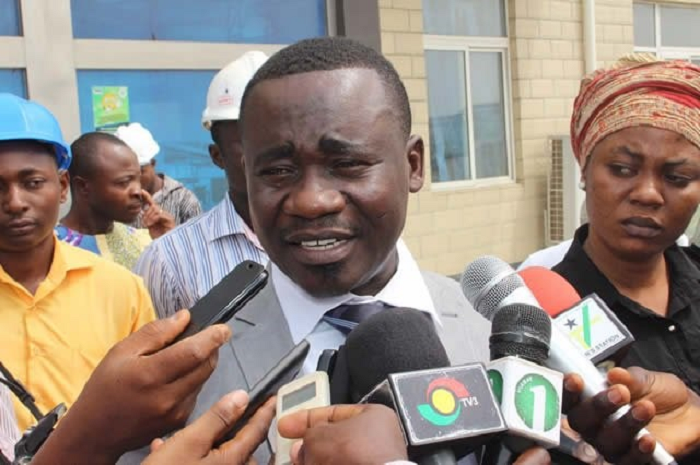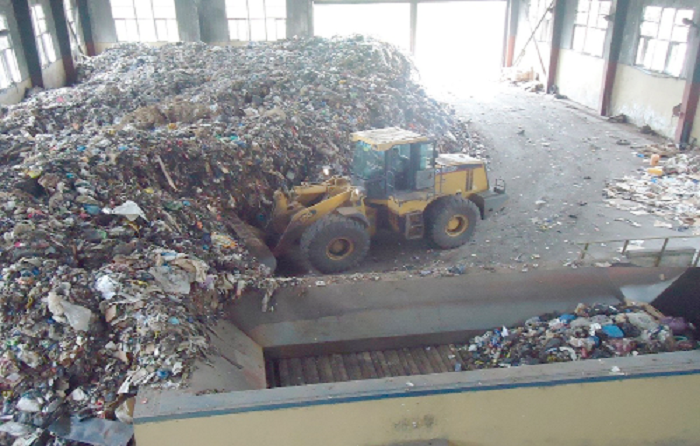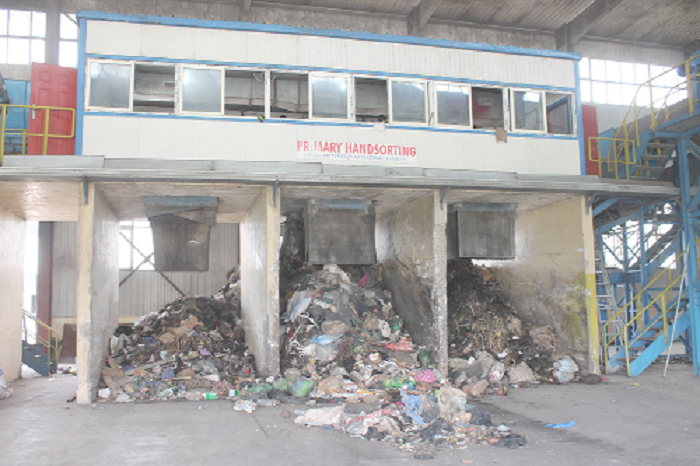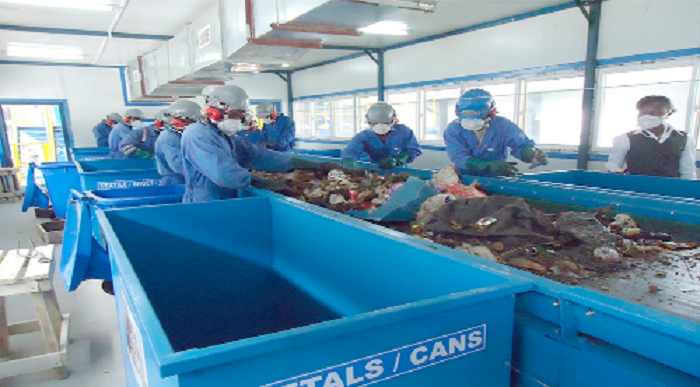
Accra Compost & Recycling Plant positioned for cleanest city agenda
The Accra Compost and Recycling Plant (ACARP) is well positioned to make government’s dream of making Accra the cleanest city in Africa a reality, the Managing Director, Dr Richard Amponsah, has said.
Advertisement
“ACARP operations have since July, 2012 helped to divert over half a million tons of municipal solid waste MSW from landfill sites for material recovery and reuse. Over 70 per cent of the recovered materials such as recyclables have been processed and made available to respective industries as semi-finished raw materials for production,” he explained.

Dr Amponsah observed that many countries had long moved from landfilling and were now recycling waste materials into other useful products, which made the ACARP a strategic partner in the government’s quest to improve on the country’s environmental sanitation.
“Here in Ghana, there is even a more urgent need to do away with landfilling and intensify efforts at material recovery, especially as Accra and its surrounding communities no longer have vast lands to be landfilled.

We must emphasise ‘trash-to-cash’ as that is the future of waste management in any modern city,” he stated.
The ACARP, which has installed a daily operating capacity of 600 metric tons, is a subsidiary of the Jospong Group. It was established under a Public Private Partnership (PPP) with the government to receive, sort and produce high quality organic compost from MSW for agricultural purposes in Ghana.

The tons of organic fractions which would have otherwise been found in dump sites have over the period been diverted to the ACARP for composting for agricultural purposes. This has helped to avert the negative effects of greenhouse gases on the ozone layer. The Possibility of any form of environmental pollution such as water and soil is drastically reduced as a result of limited or complete absence of organic materials on the landfill,” Dr Amponsah stated.
President Nana Addo Dankwa Akufo-Addo recently announced the government’s agenda of making Accra the cleanest city in Africa, a feat many Ghanaians have described as ambitious but which Dr Amponsah believes “is ambitious but achievable and the ACARP is ready and willing to help make it a reality”.
Operations
The facility currently recovers between 75 and 80 per cent of total waste received daily for recycling and the remaining 20 to 25 per cent landfilled as residuals from operations. The recovered organic fractions of the waste are decomposed naturally into organic compost for agricultural use while the recovered recyclables such as paper, plastics and metal scraps are semi-processed into suitable forms and sold to respective local industries.
Contributions
Most of the domestic industries, especially the plastic manufacturing companies, according to Dr Amponsah have benefited immensely from the ACARP’s recycling activities over the years as a result of cheaper recycled plastic pellets as raw materials for their plastic manufacturing processes.

The ACARP, according to Dr Amponsah, has since its establishment provided direct jobs and livelihood to over 250 young Ghanaians. “The strategic location of the facility has also provided several indirect jobs to various communities in and around the plant due to improved access and utilities in the area,” he added.
He said the introduction of such a state-of-the-art material recovery technology into the waste management process in Ghana had created so much awareness among various stakeholder groups to appreciate the environmental and economic importance waste management had on the socio-economic development of the country.
As part of its drive to generate employment, especially for the youth, the ACARP has over the period also attracted many young professionals with diverse backgrounds into the waste management sector of the economy. Waste management and recycling has become very attractive to the youth as a result of the continuous delivery of sustainable waste management solutions to Ghana.
Meanwhile, the demand for compost among crop farmers, he said, had increased phenomenally over the period as a result of the ACARP’s consistent promotion of compost benefits to agriculture. That, he further stated, had led to the inclusion of the ACARP compost on the Government Annual Subsidy Programme by Ministry of Food & Agriculture.
Last year, the ACARP as part of its resolve to provide integrated waste management commissioned a 1,000 m3 capacity waste water treatment plant to process liquid waste from districts and municipalities from the northern parts of the Greater Accra Region.
Education support
Currently, the ACARP has signed a Memorandum of Understanding (MoU) with the Kwame Nkrumah University of Science and Technology (KNUST) and the University of Energy and Natural Resources to accept students for industrial research and projects.
In the last two years, the ACARP, according to Dr Amponsah, has accepted more than 50 students at all levels of education; Master of Science (MSc), postgraduate and undergraduate students from the KNUST, University of Energy and Natural Resources, University of Ghana, Legon and School of Hygiene.
He explained that one key objective of the ACARP was also to impart and share knowledge on its operations for an enhanced waste management drive in the country.
Conclusion
Dr Amponsah told the Daily Graphic that research and experimentation were ongoing to reduce the current 20 per cent residue disposed at the landfills after treatment to only five per cent when the company’s Refuse Derived Fuel (RDF) product is introduced onto the Ghanaian market. “This, when commercialised, is expected to reduce the cement industry’s energy requirements by 20 per cent. Other product development options such as plastics to diesel are also being considered to further optimise material recovery efficiency of operations,” he stated.
According to Dr Amponsah, the ACARP is considering expanding its existing facility to 1,500 metric tons per day by the end of 2018. Such an expansion, he said, would allow the ACARP to process 50 per cent of the over 2,500 metric tons of solid waste generated daily in Accra.
Currently, the construction of the Kumasi Compost and Recycling Plant is ongoing and according to Dr Amponsah, such facilities would have to be replicated in all the 10 regions to ensure that trash is made cash and employment generated for people in the communities where such facilities will be sited.



